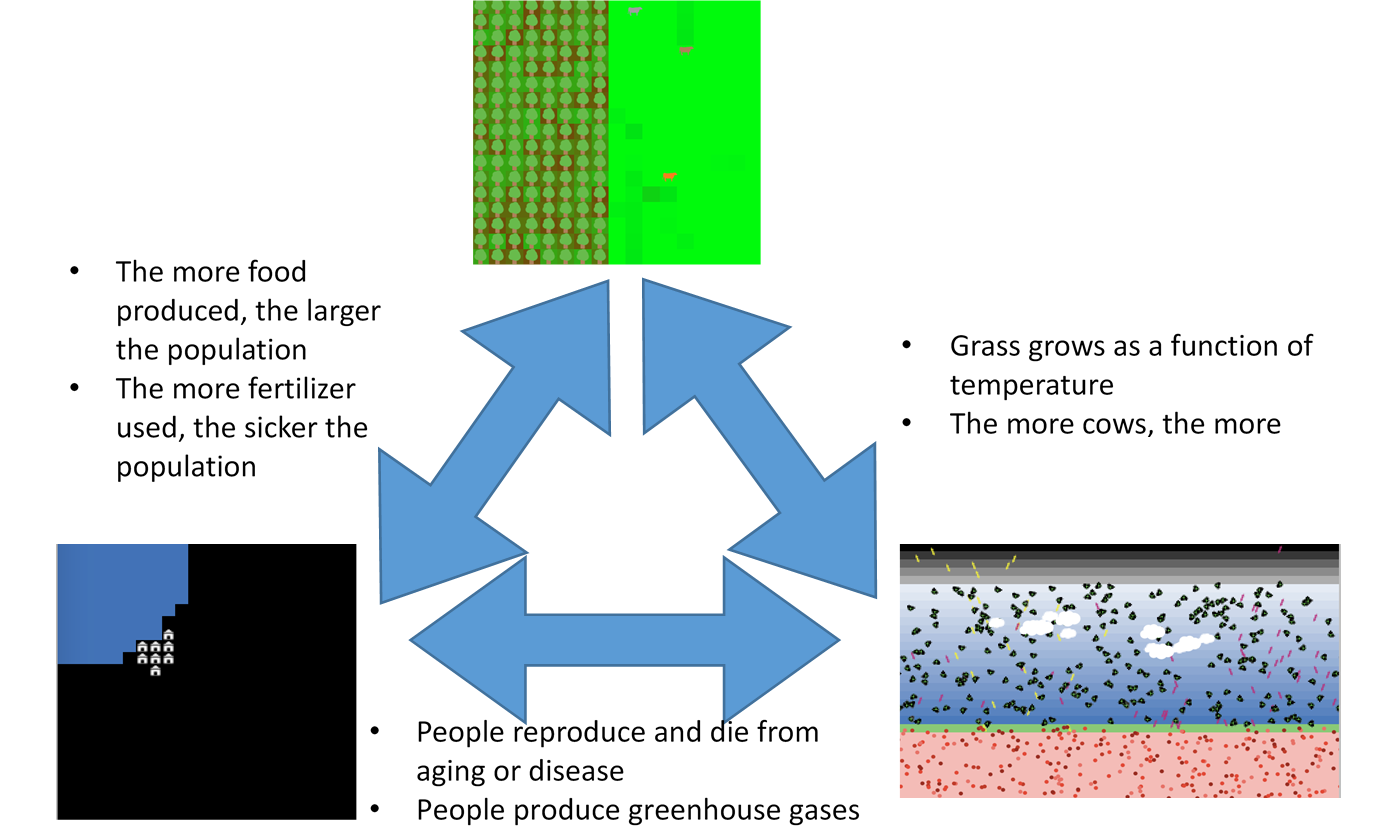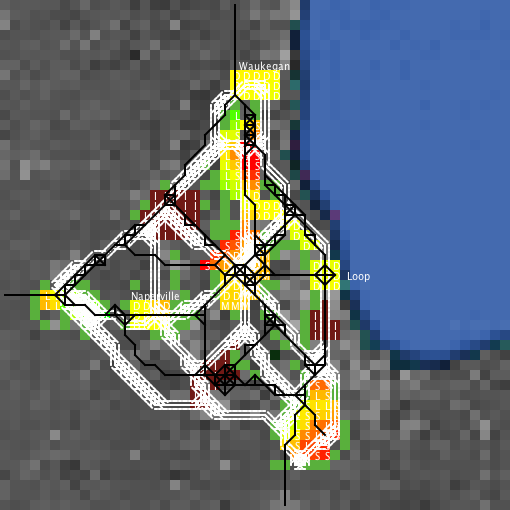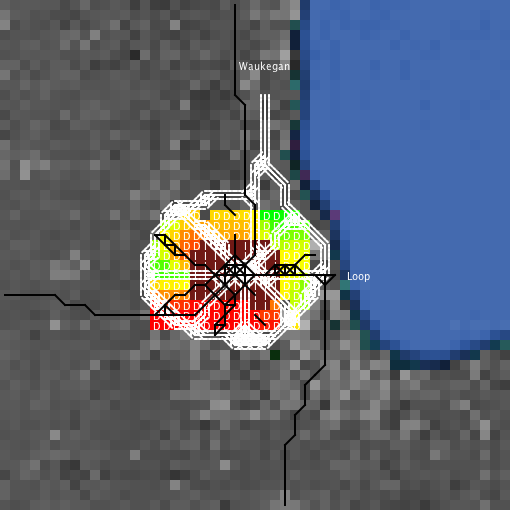LevelSpace
Modeling in Levels
GitHub Page
Overview
In Borges' fable On the Exactitude of Science, cartographers had invented a map with a one mile to one mile relationship. While initially hailed for its preciseness and level of detail, the map was quickly abandoned as too impractical to be of any use.
Lest we end like the cartographers in Borges' fable, we have to simplify and abstract our computational models to represent only the particular and clearly delimited aspects of reality that address our specific curiosities. Unlike the cartographers, whose map was too physically unwieldy, our models may end up too conceptually and computationally unwieldy: conceptually, because we want models that are simple enough that we can think in-depth with them by reflecting on the specificies of individual phenomena, and computationally because the more moving parts, the longer the runtime. Alas, this comes at a cost of excluding everything that lies "outside" of the model: We have climate change models, and ecosystem models, and urban development models, and these models simultaneously help us think about these phenomena and constrain us from connecting them. But if modeling the whole world, a mile to a mile, is not the solution, how do we bridge this inherent tension in modeling?
We believe the answer is breaking up large, interrelated, complex systems into smaller, managable models. For this purpose, we have designed LevelSpace, a NetLogo extension that allows modelers to build multi-level agent-based model systems with hundreds or thousands of concurrent models. The purpose of this grant is three-fold:
- develop software that allows for the construction of multi-level agent-based model systems,
- develop curriculum that investigates the cognitive affordances of ML-ABM systems as 'tools to think with'
- implement these curricular activities, and study thinking with these new kinds of models
Between-models thinking about Social Policy and Eco-Systems
Prior research by our group and collaborators has shown that connecting micro-level interactions and macro-level outcomes is difficult for learners. Our research will focus on using between-model thinking as a way of bridging thinking about the relationships between micro-level interactions and macro-level outcomes between different phenomena.

Students must balance food production with pollution and the environment while growing their society.
Specifically, we are interested in using multi-level model systems as a way to engage students in thinking about social policy, ecology, and their interactions. Lately we have implemented high school units on social-ecological systems in which students share renewable resource systems that they must govern and maintain. This work is based on Elinor Ostrom's analyses of resource sharing communities from around the world.
We have also implemented high school units on social policy and urban planning. In this units, students build simulated versions of Chicago and think about how planning decisions affect the lives of millions of people.


Two different student-designed cities, visualizing income disparities.
Publications
Hjorth, A., Brady, C., Head, B. & Wilensky, U. (2016). Turtles All the Way Down: Presenting LevelSpace, a NetLogo Extension for Reasoning About Complex Connectedness. Constructionism 2016, Bangkok, Thailand.
Hjorth, A., Weintrop, D., Brady, C., & Wilensky, U. (2016). LevelSpace: Constructing Models and Explanations Across Levels. Constructionism 2016, Bangkok, Thailand.
Head, B., Hjorth, A., Brady, C., & Wilensky, U. (2015). Evolving Agent Cognition with NetLogo LevelSpace. In Proceedings of the Winter Simulation Conference.
Hjorth, A., Brady, C., Head, B. and Wilensky, U. (2015). LevelSpaceGUI - Scaffolding Novice Modelers' Inter-Model Explorations. In proceedings for Interaction Design & Children 2015. Boston, MA.
Hjorth, A., Brady, C., Head, B., Wilensky, U. (2015). Thinking Within and Between Levels: Exploring Reasoning with Multi-Level Linked Models. In T. Koschmann, P. Häkkinen, & P. Tchounikine (Eds.), "Exploring the material conditions of learning: opportunities and challenges for CSCL," the Proceedings of the Computer Supported Collaborative Learning (CCL) Conference Gothenburg, Sweden: ISLS.
Hjorth, A. & Wilensky, U. (2014). Redesigning Your City - A Constructionist Environment for Urban Planning Education. Proceedings of Constructionism 2014, Vienna, Aug 19-23.
Downloads and Citations
LevelSpace is a NetLogo extension, and will run on Mac, Windows, and Linux. LevelSpace allows you to run an arbitrary number of concurrent NetLogo models that communicate with each other.
If you use LevelSpace in your research, we ask that you cite
Hjorth, A. Head, B. & Wilensky, U. (2015). "LevelSpace NetLogo extension". http://ccl.northwestern.edu/levelspace/index.html. Evanston, IL: Center for Connected Learning and Computer Based Modeling, Northwestern University.
Acknowledgements
This work is supported in part by the National Science Foundation under NSF grant 1441552. However, any opinions, findings, conclusions, and/or recommendations are those of the investigators and do not necessarily reflect the views of the Foundation.